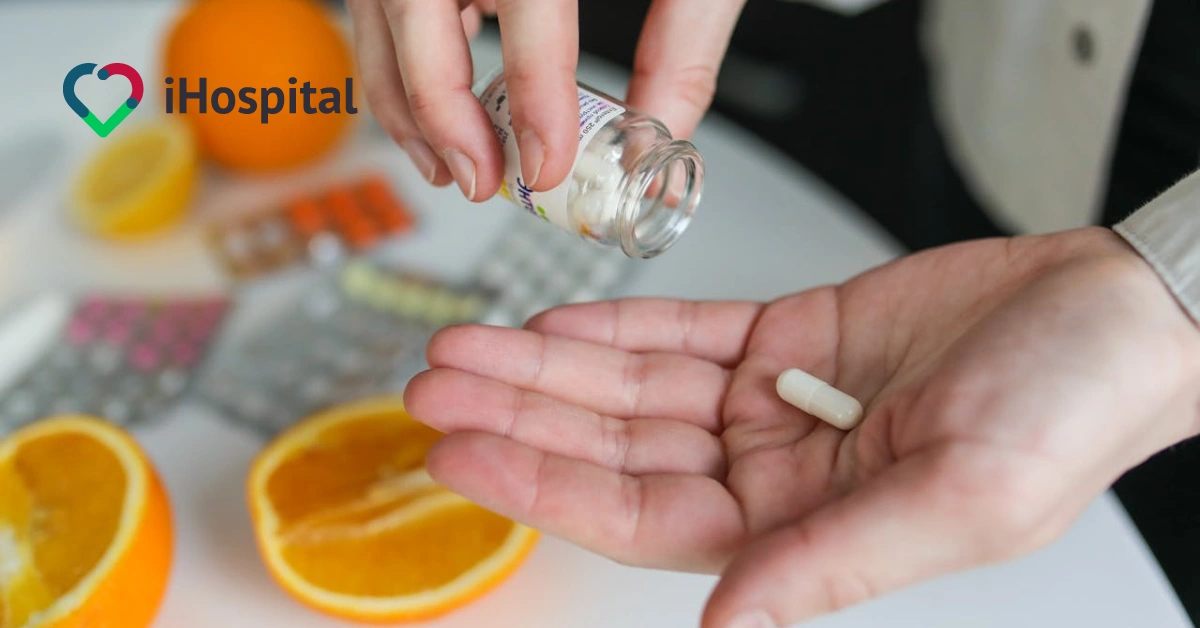
Common summer illnesses: How to avoid them and stay healthy
2024-06-27
<h1>Common summer illnesses: How to avoid them and stay healthy</h1><p> </p><p>In the summertime, certain health issues become more common due to the heat and increased outdoor activities, and environmental factors. At the same time, summer can be full of fun activities and time spent with your loved ones, which is why it's important to try to stay safe and healthy, by following some important preventive tips, to help avoid illness, stay healthy, and create memories that will last for many summers to come.</p><p><strong>Learn about some common summer illnesses and tips on how to avoid them and stay healthy:</strong></p><h2>1. Heat stroke</h2><p>Heat stroke is a medical emergency that occurs when the body temperature rises to 40 degrees Celsius or higher and the body's thermoregulatory mechanisms fail to cool the body effectively, <strong>resulting in symptoms such as:</strong></p><ul><li>Excessive sweating, weakness, dizziness, nausea, headache.</li><li>Confusion, rapid pulse, hot and dry skin.</li><li>Muscle cramps and spasms.</li></ul><p><strong>To prevent heat stroke:</strong></p><ul><li>Drink plenty of water throughout the day to stay hydrated.</li><li>Avoid prolonged exposure to direct sunlight, especially during peak hours (10 a.m. to 4 p.m.).</li><li>Wear light, loose-fitting, light-colored cotton clothing.</li><li>Use sunscreen with an appropriate SPF (30 and above) to protect your skin from sunburn.</li><li>Take frequent breaks in the shade or indoors if you are doing outdoor activities.</li></ul><p> </p><h2>2. Food poisoning</h2><p>In summer, many microorganisms such as salmonella thrive and multiply in food. For this reason, unless you prepare and store your food properly, you can develop an acute case of food poisoning, the symptoms of which are: Nausea, vomiting, diarrhea, abdominal pain, and fever.</p><p><strong>To prevent food poisoning:</strong></p><ul><li>Make sure food is properly cooked and stored at the right temperatures.</li><li>Avoid eating foods that have been left in the heat for long periods of time.</li><li>Wash your hands thoroughly before and after cooking or eating food.</li><li>Be cautious about eating food from unreliable sources.</li></ul><p> </p><h2>3. Dehydration</h2><p>Dehydration occurs when you lose large amounts of water, without adequate replacement, and is common in the summer; a time when sweating increases, and its symptoms: Dry mouth, fatigue, dizziness, and dark-colored urine.</p><p><strong>To prevent dehydration:</strong></p><ul><li>Drink water regularly, even if you don't feel thirsty.</li><li>Add moisturizing, water-rich foods to your diet, such as fruits (watermelon, pineapple) and vegetables.</li><li>Avoid excessive caffeine consumption.</li><li>Minimize intense physical activity during the hottest hours of the day.</li></ul><p> </p><h2>4. Skin infections and rashes</h2><p>Red, irritated, or itchy skin, possibly with blisters or swelling.</p><p><strong>To prevent skin infections and rashes:</strong></p><ul><li>Shower and change wet or sweaty clothes immediately.</li><li>Use anti-friction products if you are prone to skin irritation.</li><li>Keep your skin clean and dry, especially in hot and humid weather.</li></ul><p> </p><h2>5. Insect bites and stings</h2><p>Insect bites and stings are common summer health issues that can cause redness, swelling, itching, and in severe cases, allergic reactions that require immediate medical attention, such as difficulty breathing.</p><p><strong>To prevent insect bites and stings:</strong></p><ul><li>Use insect repellent when spending time outdoors.</li><li>Wear long sleeves and pants in areas with high insect activity.</li><li>Avoid standing water where mosquitoes breed.</li></ul><p>If you are bitten or stung by an insect, remove the needle if present, wash the area with soap and water, then apply a cold compress to reduce swelling and pain. If you experience an allergic reaction, seek medical attention immediately.</p><p> </p><h2>6. Waterborne Diseases</h2><p>One of the most common summer health issues that can be acquired from swimming in contaminated water is waterborne illnesses. These include respiratory infections, digestive disorders, and skin infections. Symptoms: Gastrointestinal issues such as diarrhea, nausea, and vomiting.</p><p><strong>To prevent waterborne diseases:</strong></p><ul><li>Avoid swallowing water when swimming in swimming pools or lakes.</li><li>Make sure swimming pools are properly chlorinated and maintained.</li><li>Avoid swimming in water that looks dirty or contaminated.</li></ul><p> </p><h2>7. Swimmer's ear (otitis)</h2><p>Swimmer's ear is an ear infection caused by contaminated water remaining in the ear after swimming. Symptoms typically include ear pain, redness, swelling, itching inside the ear, and pus or excessive drainage from the affected ear.</p><p><strong>To prevent swimmer's ear this summer, be sure to:</strong></p><ul><li>Avoid putting foreign objects such as cotton buds in your ear.</li><li>Avoid removing earwax, as it helps protect your ear from infection.</li><li>Try to keep your ears well-dried when swimming, using a swim cap or earplugs.</li><li>Dry your ears thoroughly after swimming with a towel, or tilt your head and pull on your earlobe to let the water out.</li><li>Ask your doctor about using ear drops after swimming to help dry out your ear canal.</li></ul><p><strong>If you suspect you have an ear infection, don't hesitate to book an appointment with <a href="https://www.ihospitalapp.com/ar/search/%D8%A7%D9%86%D9%81-%D9%88%D8%A7%D8%B0%D9%86-%D9%88%D8%AD%D9%86%D8%AC%D8%B1%D8%A9/%D8%A7%D9%84%D8%A3%D8%B1%D8%AF%D9%86/%D8%B9%D9%85%D8%A7%D9%86/%D8%AC%D9%85%D9%8A%D8%B9-%D8%A7%D9%84%D9%85%D9%86%D8%A7%D8%B7%D9%82/%D8%AC%D9%85%D9%8A%D8%B9-%D8%A7%D9%84%D8%AA%D8%A3%D9%85%D9%8A%D9%86%D8%A7%D8%AA">the best ear doctors</a> in the iHospital network and get top tips to avoid ear infections and how to take care of them.</strong></p><p> </p><h2>8. Sunburn</h2><p>When exposed to the sun for too long, harmful ultraviolet rays (UVA and UVB) can penetrate your sensitive skin causing sunburn, resulting in itchy, red, painful, and possibly blistering and flaky skin.</p><p><strong>To prevent sunburn:</strong></p><ul><li>Apply sunscreen with SPF 30 or higher 20 minutes before going outside, reapply every two hours, and when swimming or sweating.</li><li>Wear wide-brimmed hats, sunglasses, and long-sleeved clothing.</li><li>Try to stay in the shade as much as possible, especially during peak sun hours.</li></ul><p><strong>Book your appointment with <a href="https://www.ihospitalapp.com/ar/search/%D8%A7%D9%84%D8%AC%D9%84%D8%AF%D9%8A%D8%A9-%D9%88%D8%A7%D9%84%D8%AA%D9%86%D8%A7%D8%B3%D9%84%D9%8A%D8%A9/%D8%A7%D9%84%D8%A3%D8%B1%D8%AF%D9%86/%D8%B9%D9%85%D8%A7%D9%86/%D8%AC%D9%85%D9%8A%D8%B9-%D8%A7%D9%84%D9%85%D9%86%D8%A7%D8%B7%D9%82/%D8%AC%D9%85%D9%8A%D8%B9-%D8%A7%D9%84%D8%AA%D8%A3%D9%85%D9%8A%D9%86%D8%A7%D8%AA">the best dermatologists</a> in the iHospital network and get top tips to avoid summer illnesses and recommendations on skin care products that work for you.</strong></p><p> </p><h2>9. Allergies</h2><p>Allergies occur when your body's immunity is unable to fight off foreign bodies that enter it, and this disease is especially prevalent in spring and early summer, when flowers are blooming and your skin comes into contact with pollen. <strong>Symptoms:</strong></p><ul><li>Nasal congestion and watery eyes.</li><li>Coughing and sneezing.</li><li>fatigue and fever.</li></ul><p><strong>To prevent allergies:</strong></p><ul><li>Minimize your exposure to allergens.</li><li>Wear a mask when you go outside.</li><li>Keep windows and doors closed, and use air conditioning.</li><li>Talk to your doctor about using allergy medications.</li></ul><p><strong>Stay safe this summer, and follow the above tips to prevent summer illnesses and stay healthy.</strong></p><hr><h2>References</h2><ol><li aria-level="1"><a href="https://pharmeasy.in/blog/summer-health-tips-to-prevent-the-common-summer-season-diseases/">4 Common Summer Season Diseases & How To Prevent Them</a>, PharmEasy</li><li aria-level="1"><a href="https://health.wyo.gov/dos-and-donts-to-help-avoid-common-summer-illnesses/">Do’s and Don’ts to Help Avoid Common Summer Illnesses</a>, Wyoming Department of Health</li><li aria-level="1"><a href="https://www.adventhealth.com/blog/how-avoid-common-summer-illnesses">How to Avoid Common Summer Illnesses</a>, AdventHealth</li></ol>